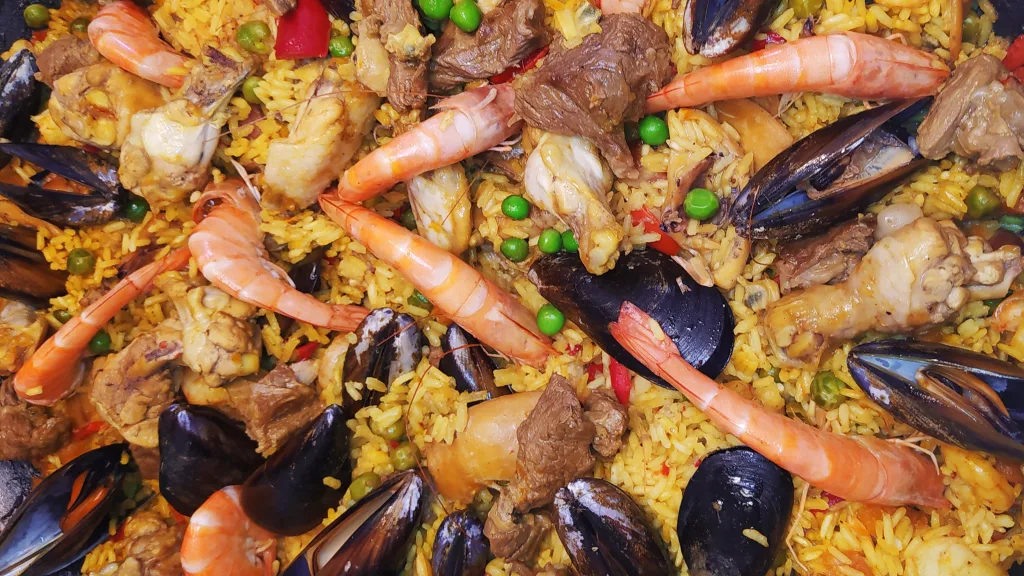When it comes to food safety, it’s important to be aware of certain types of food that can pose a higher risk of causing foodborne illnesses. These foods are known as Time/Temperature Control for Safety (TCS) foods. TCS foods are those that require specific temperature control to prevent the growth of harmful bacteria. In this article, we will delve into the world of TCS foods and discuss which food items fall into this category.
Milk, eggs, shellfish, and fish are among the commonly known TCS foods. These items are highly perishable and can quickly become breeding grounds for bacteria if not stored and handled correctly. It is crucial to keep these foods refrigerated at temperatures below 41°F (5°C) to inhibit bacterial growth.
Meats and meat alternatives are also considered TCS foods. This includes various types of poultry, beef, pork, and lamb. Ground meats, such as ground beef or turkey, are especially prone to bacterial contamination due to the increased surface area for bacteria to grow. It is essential to cook these meats thoroughly to an internal temperature of at least 165°F (74°C) to kill any harmful bacteria.
Another surprising addition to the TCS food list is untreated garlic and oil mixtures. These mixtures can provide an ideal environment for the growth of Clostridium botulinum, a bacteria that produces a potent toxin. To prevent the risk of botulism, it is recommended to store garlic and oil mixtures in the refrigerator and discard them after seven days.
Baked potatoes, particularly those that are cooked and then held at room temperature, are also classified as TCS foods. Potatoes offer an ideal environment for bacterial growth when they are not stored at proper temperatures. It is crucial to keep baked potatoes hot at 135°F (57°C) or above, or cold at 41°F (5°C) or below to prevent bacterial growth.
Raw sprouts, such as bean sprouts or alfalfa sprouts, are another type of TCS food. Sprouts are often contaminated with bacteria during the growing process and can pose a significant risk if consumed raw or undercooked. It is recommended to cook sprouts thoroughly before consumption to minimize the risk of foodborne illnesses.
Cooked rice, cut tomatoes, and cut melons also fall into the TCS food category. These items have a higher risk of bacterial contamination if not stored properly. Cooked rice should be cooled rapidly and stored in the refrigerator at 41°F (5°C) or below. Cut tomatoes and melons should be refrigerated at the same temperature to prevent bacterial growth.
It is crucial to handle and store TCS foods with utmost care to minimize the risk of foodborne illnesses. Regular temperature monitoring, proper cooking techniques, and appropriate storage conditions are essential practices to ensure food safety.
TCS foods encompass a variety of perishable items that require specific temperature control to prevent bacterial growth. Milk, eggs, shellfish, fish, meats, meat alternatives, untreated garlic and oil mixtures, baked potatoes, raw sprouts, cooked rice, cut tomatoes, and cut melons are all considered TCS foods. By understanding and following proper handling and storage practices, we can reduce the risk of foodborne illnesses associated with these foods. Stay informed, stay safe!
Which Food Is A TCS Food?
TCS (Time/Temperature Control for Safety) foods are those that require specific temperature control to prevent the growth of harmful bacteria. These foods are more prone to bacterial contamination and can cause foodborne illnesses if not handled and stored properly. Here is a comprehensive list of TCS foods:
1. Milk: Including all types of dairy milk, such as cow’s milk, goat’s milk, and sheep’s milk.
2. Eggs: Including raw eggs, egg products, and dishes containing eggs like omelets or scrambled eggs.
3. Shellfish: Including raw or undercooked shellfish like oysters, clams, mussels, and scallops.
4. Fish: Including raw or undercooked fish like sushi, sashimi, ceviche, and smoked fish.
5. Meats: Including raw or undercooked meats like beef, pork, lamb, veal, and poultry.
6. Meat Alternatives: Including plant-based meat substitutes like tofu, tempeh, and seitan.
7. Untreated garlic/oil mixture: Homemade mixtures of garlic and oil can support the growth of Clostridium botulinum bacteria if not refrigerated properly.
8. Baked Potatoes: Baked potatoes that are prepared and then held at room temperature can become a breeding ground for bacteria.
9. Raw Sprouts: Raw sprouts, such as alfalfa, bean, or clover sprouts, are susceptible to bacterial contamination during the sprouting process.
10. Cooked Rice: Cooked rice can harbor Bacillus cereus bacteria if not cooled and stored correctly.
11. Cut fruits and vegetables: Fresh fruits and vegetables that have been cut and are ready to eat are considered TCS foods, as they can quickly spoil and become contaminated.
It is crucial to handle, store, and cook TCS foods properly to minimize the risk of foodborne illnesses. Following good hygiene practices, maintaining proper temperatures, and avoiding cross-contamination are essential when dealing with TCS foods.

Which Of These Is A TCS Food A?
A TCS food (Time/Temperature Control for Safety) is a type of food that requires specific time and temperature control to prevent the growth of bacteria and other harmful pathogens. Among the options listed, the TCS food is “Shellfish.”
Shellfish, including clams, mussels, oysters, and scallops, are considered TCS foods because they are highly perishable and can easily become contaminated if not handled and stored properly. These foods are known to harbor bacteria such as Vibrio vulnificus, which can cause foodborne illnesses if consumed.
To ensure the safety of shellfish, it is important to store them at the correct temperature (below 41°F or above 135°F) and handle them with clean hands and utensils. Proper cooking techniques, such as steaming or boiling, should also be employed to eliminate any potential pathogens.
Shellfish is the TCS food among the options listed. Proper handling, storage, and cooking techniques are essential to prevent foodborne illnesses associated with shellfish consumption.
Which Food Is Not A TCS Food?
Non-Potentially Hazardous Food – Non-TCS:
1. Dry goods: Foods such as grains, flour, sugar, and spices that have a low moisture content and are not prone to bacterial growth.
2. Dry cereals: Cereal products that are dry and do not require refrigeration, including corn flakes, rice puffs, and oatmeal.
3. Dehydrated and un-reconstituted foods: Foods that have been dried to remove moisture, such as dried fruits, beef jerky, and powdered milk, which do not support bacterial growth.
4. Candy bars: Confectionery products that have a long shelf life due to their low moisture content and high sugar content, making them resistant to bacteria.
5. Popcorn: Unpopped popcorn kernels and pre-packaged popcorn that do not require refrigeration, as they have low water activity and do not support bacterial growth.
6. Potato chips: Packaged crispy snack foods made from sliced and fried potatoes, which have low water activity and are not a favorable environment for bacteria.
7. Canned pop and sodas: Carbonated beverages that are commercially canned and have a high sugar or acid content, making them inhospitable to bacteria growth.
It is important to note that while these non-TCS foods may not support the growth of disease-causing bacteria, proper handling, storage, and packaging are still essential to maintain their quality and prevent contamination.
What Are TCS And Ready To Eat Food?
TCS stands for time-temperature control for safety, which refers to a specific category of foods that require careful monitoring of both time and temperature to prevent the growth of harmful bacteria. These foods are usually perishable and can become unsafe to consume if not handled properly.
Ready-to-eat (RTE) foods, on the other hand, are foods that are prepared and packaged in a way that they can be consumed without any further cooking or reheating. These foods are typically fully cooked and are meant to be eaten as is, without any additional preparation.
RTE foods can include a wide range of products, such as deli meats, pre-packaged salads, sandwiches, sushi, and desserts. These foods are often found in grocery stores, convenience stores, and restaurants, and are popular because they offer convenience and can be consumed on the go.
It is important to note that RTE foods, especially those that are refrigerated, are susceptible to bacterial growth if not properly handled and stored. This is why TCS guidelines are crucial in ensuring the safety of these foods.
To maintain the safety of TCS RTE foods, it is important to adhere to the following guidelines:
1. Time control: RTE foods should be consumed within a certain timeframe to minimize the risk of bacterial growth. This timeframe can vary depending on the specific food, but it is generally recommended to consume these foods within a few days of opening or purchasing.
2. Temperature control: RTE foods should be stored at the proper temperature to prevent bacterial growth. Refrigerated RTE foods should be kept at or below 41°F (5°C) to slow down the growth of bacteria. It is important to check the temperature of the refrigerator regularly to ensure it is functioning properly.
3. Proper handling: When handling RTE foods, it is important to practice good hygiene. This includes washing hands thoroughly before handling the food, using clean utensils and equipment, and avoiding cross-contamination with raw foods.
TCS refers to time-temperature control for safety, which is crucial for ensuring the safety of perishable foods. Ready-to-eat (RTE) foods are fully cooked foods that can be consumed without further preparation. However, it is important to handle and store these foods properly to prevent bacterial growth and ensure their safety.

Conclusion
TCS foods, which stands for Time/Temperature Control for Safety foods, encompass a wide range of perishable items that require careful handling and storage to prevent the growth of disease-causing bacteria. These foods include milk, eggs, shellfish, fish, meats, meat alternatives, untreated garlic/oil mixtures, baked potatoes, raw sprouts, cooked rice, and cut fruits and vegetables.
The reason TCS foods are categorized as such is because they have the potential to support the growth of harmful bacteria if not handled and stored properly. This is why it is crucial for food establishments and individuals to adhere to strict food safety guidelines when it comes to TCS foods.
The risks associated with mishandling TCS foods are significant. Consumption of contaminated TCS foods can lead to foodborne illnesses, which can range from mild discomfort to severe symptoms such as vomiting, diarrhea, and even hospitalization. Vulnerable populations, such as young children, pregnant women, and the elderly, are particularly susceptible to these illnesses.
To ensure the safety of TCS foods, it is important to follow proper food handling and storage practices. This includes maintaining the correct temperature, both during storage and during cooking, to prevent the growth of bacteria. It also involves effective cleaning and sanitizing of utensils, equipment, and surfaces to avoid cross-contamination.
Additionally, regular monitoring and record-keeping of temperature logs are crucial to ensure that TCS foods are being stored and handled within safe temperature ranges. This helps to identify and address any potential issues that may arise.
Understanding and implementing proper food safety practices when it comes to TCS foods is essential for the well-being of consumers. By being vigilant and adhering to guidelines, we can minimize the risk of foodborne illnesses and ensure that TCS foods are safe to consume.
